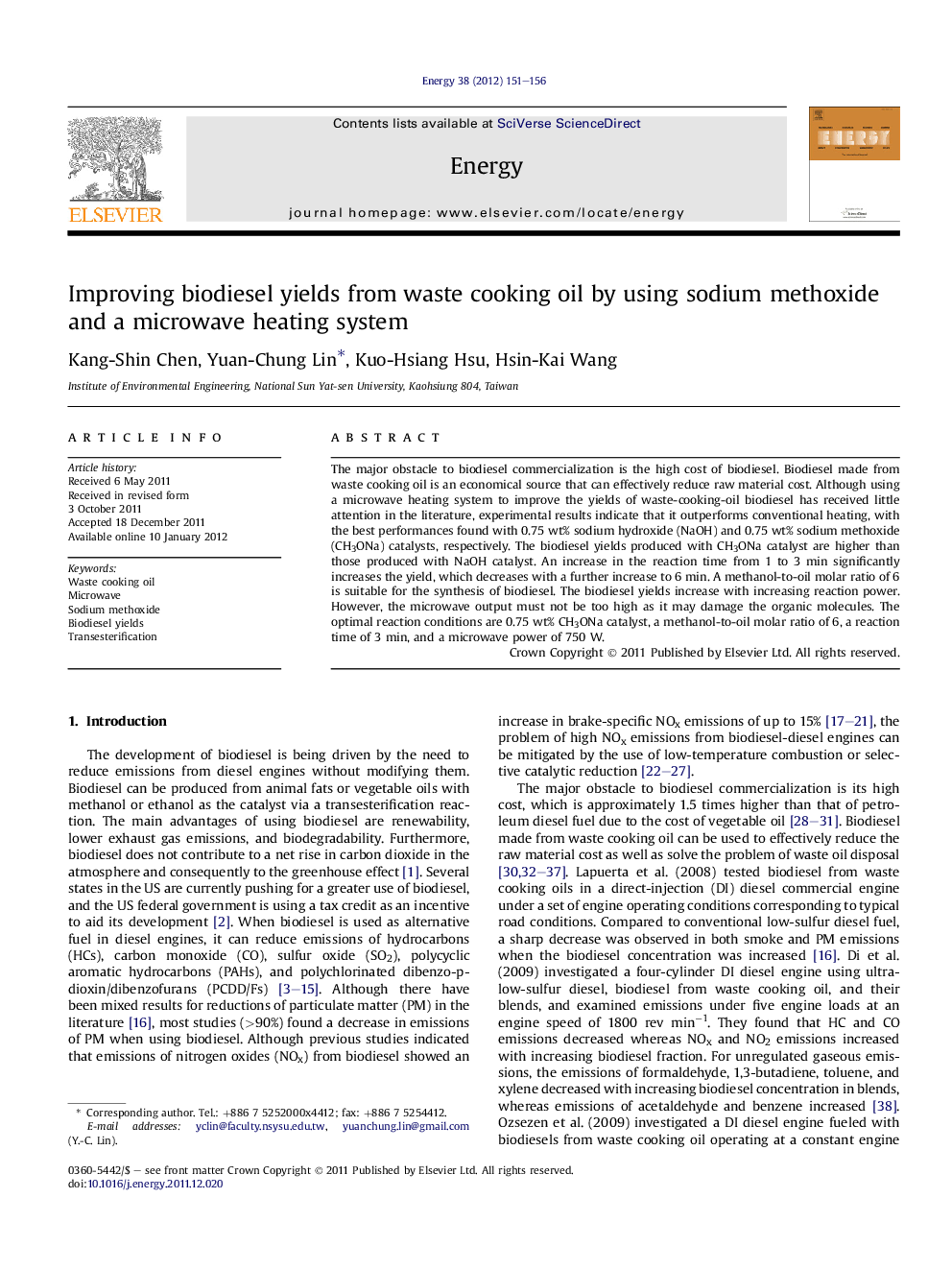| کد مقاله | کد نشریه | سال انتشار | مقاله انگلیسی | نسخه تمام متن |
|---|---|---|---|---|
| 1733872 | 1016147 | 2012 | 6 صفحه PDF | دانلود رایگان |

The major obstacle to biodiesel commercialization is the high cost of biodiesel. Biodiesel made from waste cooking oil is an economical source that can effectively reduce raw material cost. Although using a microwave heating system to improve the yields of waste-cooking-oil biodiesel has received little attention in the literature, experimental results indicate that it outperforms conventional heating, with the best performances found with 0.75 wt% sodium hydroxide (NaOH) and 0.75 wt% sodium methoxide (CH3ONa) catalysts, respectively. The biodiesel yields produced with CH3ONa catalyst are higher than those produced with NaOH catalyst. An increase in the reaction time from 1 to 3 min significantly increases the yield, which decreases with a further increase to 6 min. A methanol-to-oil molar ratio of 6 is suitable for the synthesis of biodiesel. The biodiesel yields increase with increasing reaction power. However, the microwave output must not be too high as it may damage the organic molecules. The optimal reaction conditions are 0.75 wt% CH3ONa catalyst, a methanol-to-oil molar ratio of 6, a reaction time of 3 min, and a microwave power of 750 W.
► Biodiesel from waste cooking oil is an effective strategy for reducing cost and solving the problem of waste oil.
► Microwave system can increase reaction rate, product yields, and purity of products.
► Sodium methoxide would be used as catalysts to increases reaction rate of biodiesel.
Journal: Energy - Volume 38, Issue 1, February 2012, Pages 151–156